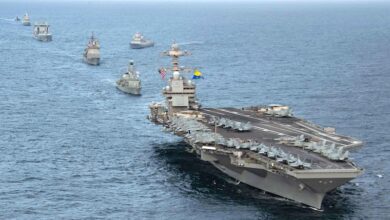JERUSALEM, Israel – Egypt is poised to begin importing natural gas from Israel early in 2019. The $1.5 billion deal signed last February will hopefully benefit both countries.
Between 2011 and 2014, Islamic terror cells embedded in the Sinai Peninsula periodically attacked Egypt’s natural gas pipelines to Israel and Jordan. Security cameras caught some of the jihadists on film.
Today, the situation is reversed. The importer and exporter have exchanged roles.
“Imports will start in small quantities first and will gradually increase to reach their climax in September 2019,” Reuters quoted an anonymous source, who declined to provide details on the agreement.
According to the report, the agreements call for Israel to transport 64 billion cubic meters of natural gas from two offshore fields – Tamar and Leviathan – to Egypt’s Dolphinus Holdings over the next 10 years.
Half of the gas will come from the Tamar field, which has an estimated 238 billion cubic meters of natural gas, and the other half from Leviathan.
Egyptian President Abdel Fattah el-Sisi believes the agreement will elevate Egypt’s status as an energy provider in the region. Since his election in May 2014, el-Sisi has devoted much of his time and energy to rehabilitating the economy. His first major undertaking was refurbishing and expanding the Suez Canal, projected to more than double its annual revenue from $5 to $12.5 billion. The ambitious project includes a new city, industrial areas, fish farms and other facilities.
El-Sisi also called on Israel to help rout terror cells embedded in the Sinai. The government answered the call, allowing Egypt to deploy its troops to the Sinai under the watchful eye of the Israel Defense Forces.
Egypt also clamped down on Hamas, destroying many of its tunnels dug near the Rafah border crossing to smuggle weapons and reinforcements to the Sinai terrorists.
Egyptian mediators have been less successful in convincing rival Palestinian factions to reunite. Agreements have come and gone over the years. Egypt has also served as mediator in ceasefire agreements between Israel and Hamas.
Despite political differences, Egypt and Israel’s 1979 peace agreement has remained intact, though most contact takes place behind closed doors.








